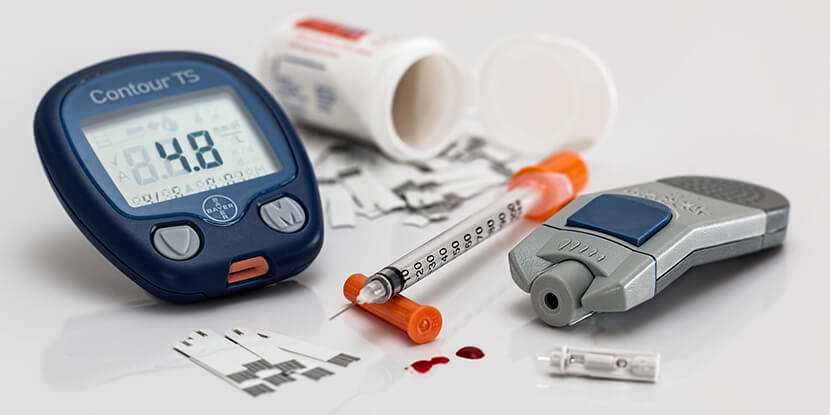What are the Symptoms and Risk Factors for Diabetes?

Recent studies indicate that the early detection of diabetes symptoms and treatment can decrease the chance of developing the complications of diabetes. Please contact your physician, if you have one or more of the following symptoms:
• Frequent urination - especially at night
• Excessive thirst
• Unexplained weight loss
• Extreme hunger
• Fatigue and irritability
• Blurred vision or sudden changes in vision
• Tingling or numbness in hands or feet
• Feeling very tired most of the time
• Very dry skin
• Sores including cuts or bruises that are slow to heal
• Frequent infections
*Often people with type 2 diabetes have no symptoms.
Are There Risks Factors for Diabetes?
Type I
• First degree relative with Type I diabetes
• The presence of certain genes indicates an increased risk of developing type 1 diabetes
• Caucasians have a greater risk for developing type 1 diabetes than African-Americans, Asians, or Hispanics
• Having other autoimmune disorders such as Grave's disease, Hashimoto's thyroiditis, Addison's disease, multiple sclerosis (MS), or pernicious anemia
• Injury or disease of the pancreas
• Infection or illness that can damage the pancreas
Type II
• Family history and genetics
• Overweight or obese
• Sedentary lifestyle (exercise fewer than 3 times per week)
• Pre-diabetes
• Ethnic background: Alaska Native, American Indian, African American, Hispanic/Latino, Asian American, or Pacific Islander
• Women with history of gestational diabetes or gave birth at least once to a baby weighing more than 9 lbs
• Increased age (>45 yrs)
• If your body stores fat primarily in your abdomen, your risk of type 2 diabetes is greater than if your body stores fat elsewhere, such as your hips and thighs
• Blood pressure is greater than 140/90 mg Hg or above or been told you have high blood pressure
• Abnormal cholesterol levels such as HDL <35 mg/dL or triglyceride levels >250 mg/dL
• Polycystic ovarian syndrome (women only)
• Impaired fasting glucose tolerance test or glucose tolerance test
• Acanthosis nigricans (dark velvety rash around the neck or armpit region) or other clinical condition associated with insulin resistance
• History of cardiovascular disease
• Metabolic syndrome


